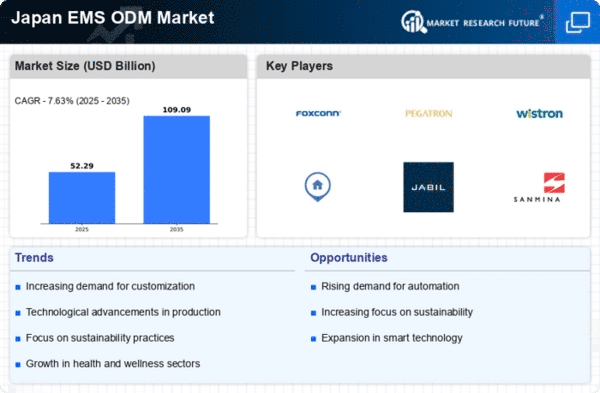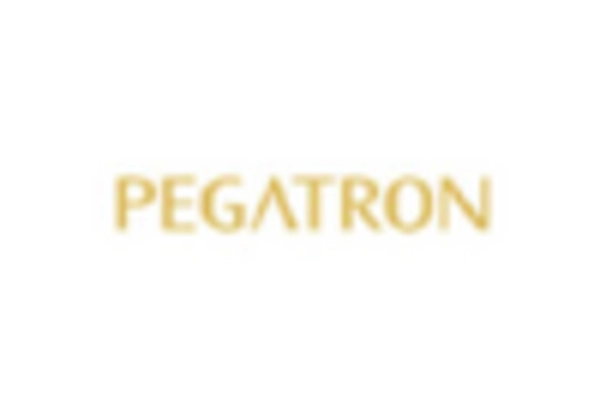Focus on Cost Efficiency
Cost efficiency remains a critical driver for the ems odm market in Japan, as companies strive to optimize their operational expenditures. With manufacturing costs rising, businesses are compelled to seek outsourcing solutions that can provide competitive pricing without compromising quality. The ems odm market offers a viable alternative, allowing firms to leverage specialized expertise and economies of scale. Reports indicate that companies can reduce production costs by up to 30% through strategic partnerships with ems odm providers. This financial incentive encourages more organizations to engage with the ems odm market, fostering a collaborative environment that benefits both manufacturers and service providers.
Innovation in Manufacturing Processes
Innovation plays a pivotal role in shaping the ems odm market in Japan, as companies increasingly adopt advanced manufacturing technologies. The integration of automation, robotics, and artificial intelligence into production lines enhances efficiency and precision. As of 2025, it is estimated that approximately 40% of manufacturing processes in the ems odm market will incorporate some form of automation. This shift not only improves productivity but also reduces lead times, enabling quicker responses to market demands. The emphasis on innovation encourages collaboration between technology providers and ems odm firms, fostering a culture of continuous improvement and adaptation within the industry.
Growth of E-commerce and Online Retail
The rapid expansion of e-commerce and online retail in Japan significantly impacts the ems odm market. As consumer preferences shift towards online shopping, companies are compelled to enhance their product offerings and streamline their supply chains. The ems odm market provides the agility required to respond to fluctuating consumer demands, enabling businesses to introduce new products swiftly. In 2025, e-commerce sales in Japan are projected to exceed $100 billion, further driving the need for efficient manufacturing solutions. This growth presents a lucrative opportunity for ems odm providers to cater to the evolving needs of online retailers, fostering a symbiotic relationship that benefits both parties.
Rising Demand for Consumer Electronics
The EMS ODM market in Japan experiences a notable surge in demand for consumer electronics, driven by the increasing adoption of smart devices. As of 2025, the market for consumer electronics is projected to reach approximately $50 billion, indicating a robust growth trajectory. This demand compels manufacturers to seek efficient production solutions, thereby enhancing the relevance of the ems odm market. The need for rapid prototyping and short production runs aligns with the evolving consumer preferences for personalized and innovative products. Consequently, companies are increasingly outsourcing their manufacturing processes to ems odm providers, who can offer the necessary flexibility and expertise to meet these dynamic market requirements.
Regulatory Compliance and Quality Standards
The EMS ODM market in Japan is significantly influenced by stringent regulatory compliance and quality standards. Companies are increasingly required to adhere to local and international regulations, which necessitates a robust quality management system. This focus on compliance drives manufacturers to partner with ems odm providers who possess the necessary certifications and expertise to navigate complex regulatory landscapes. As of 2025, it is projected that over 70% of companies in the ems odm market will prioritize partnerships with compliant providers to mitigate risks associated with non-compliance. This trend underscores the importance of quality assurance in maintaining competitiveness within the market.















